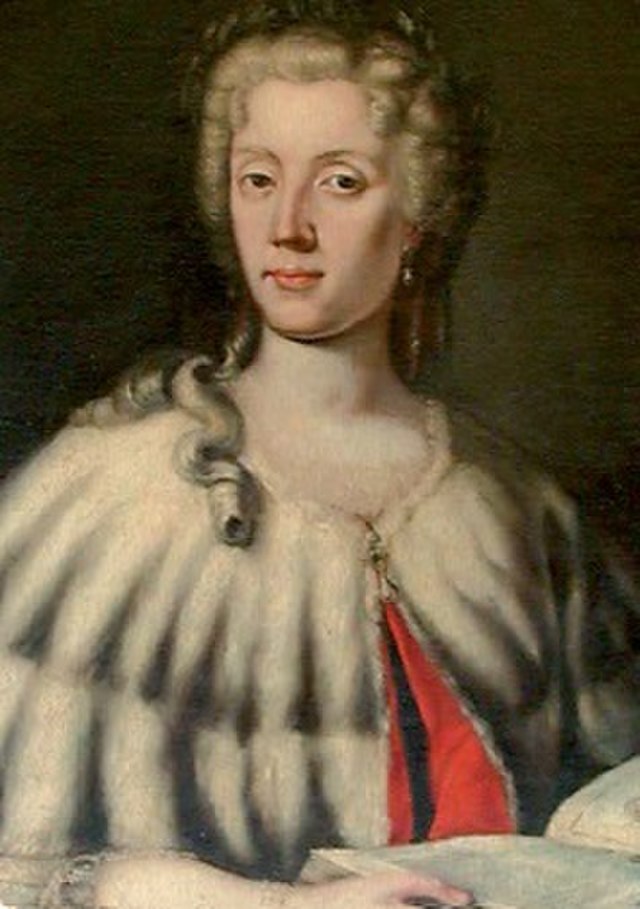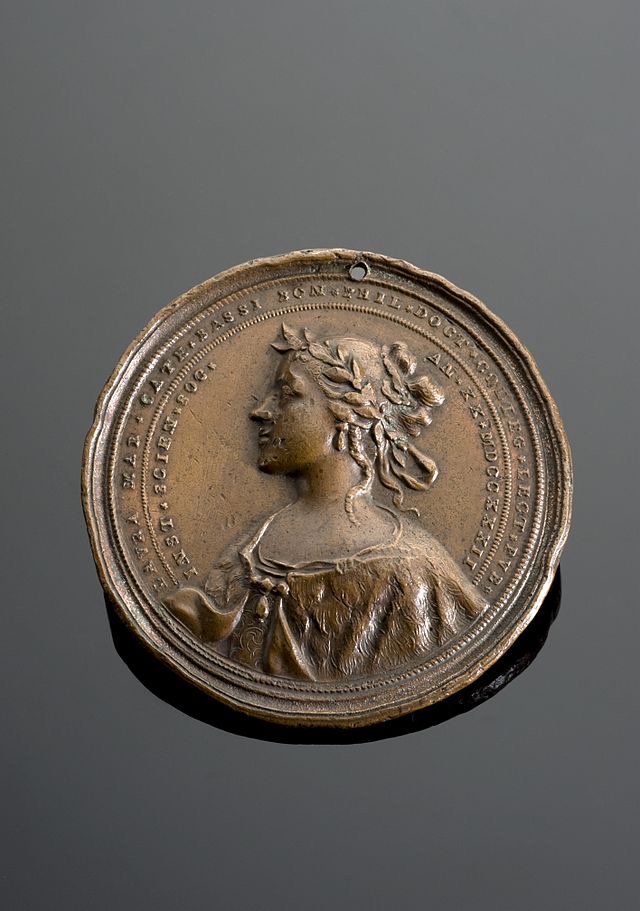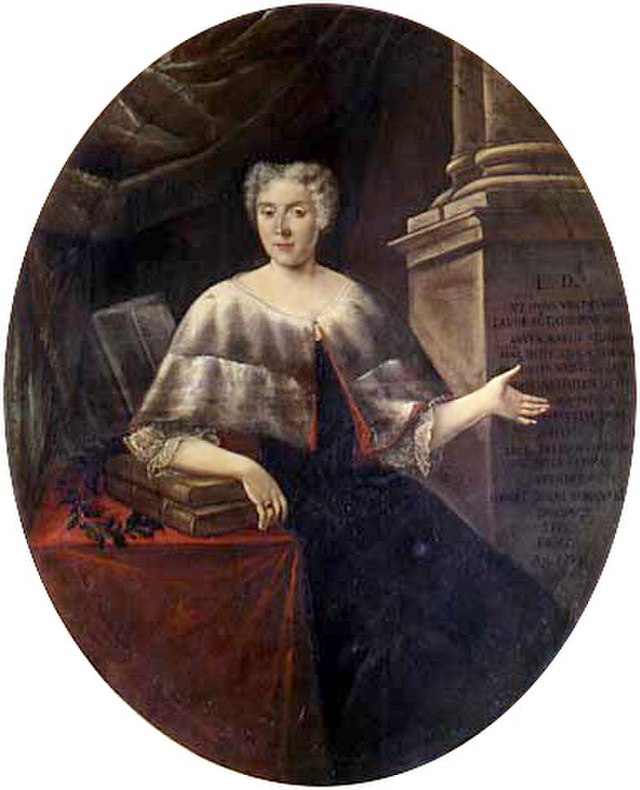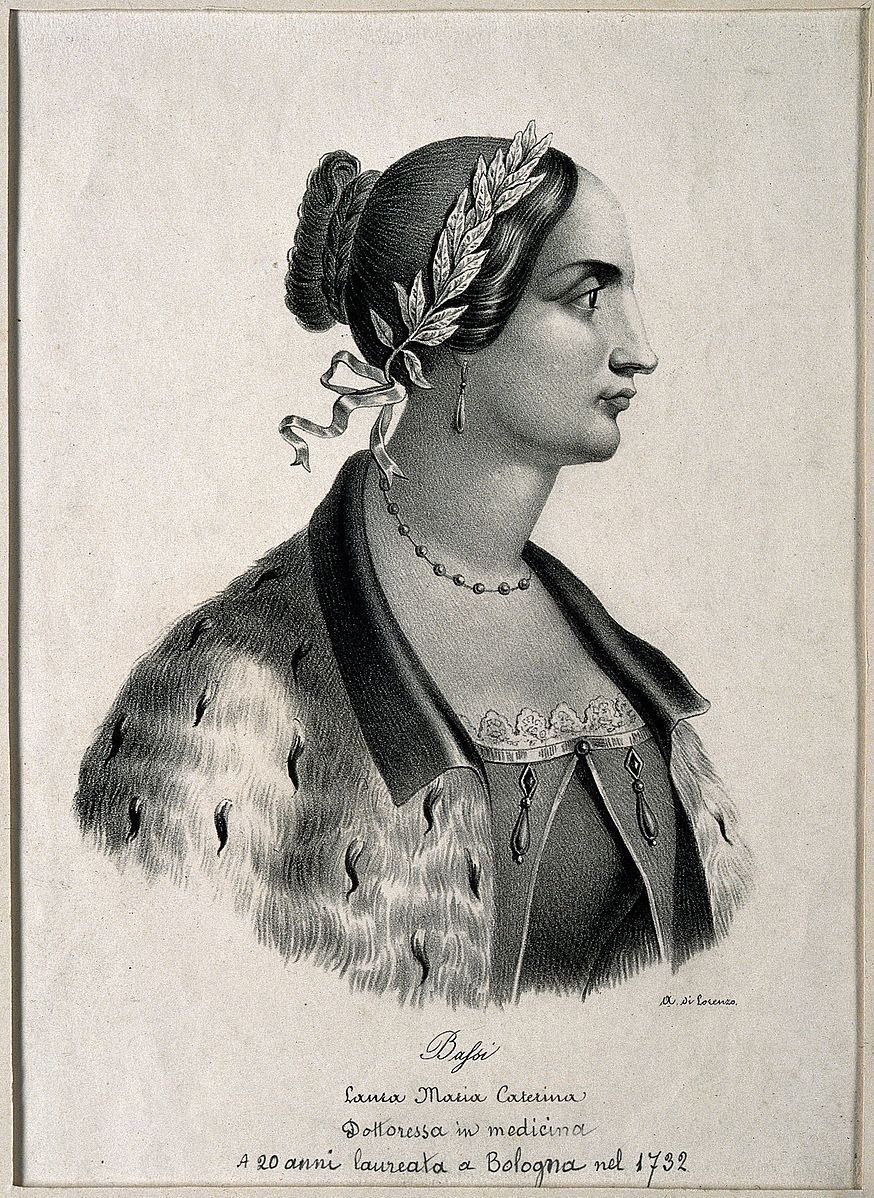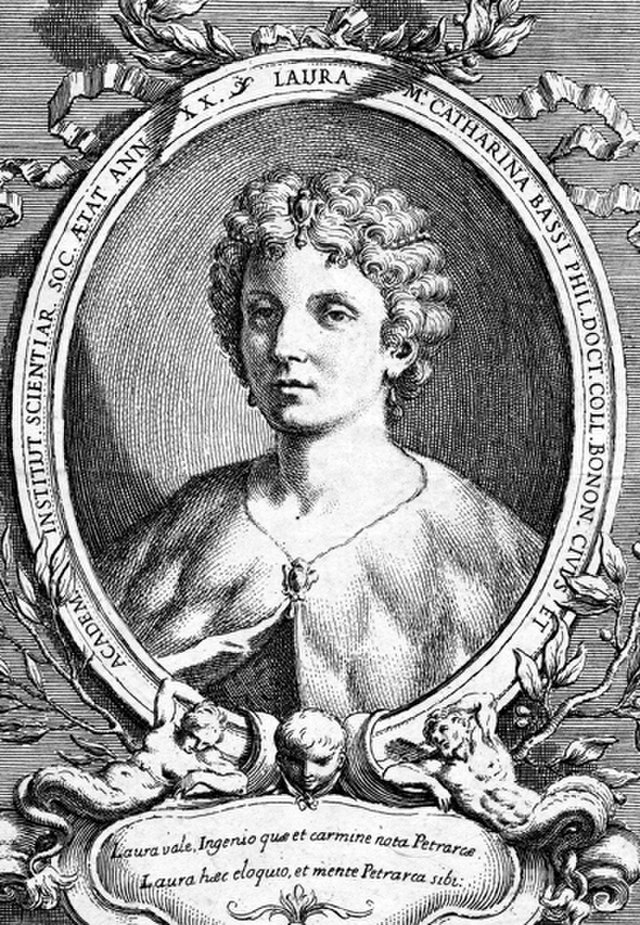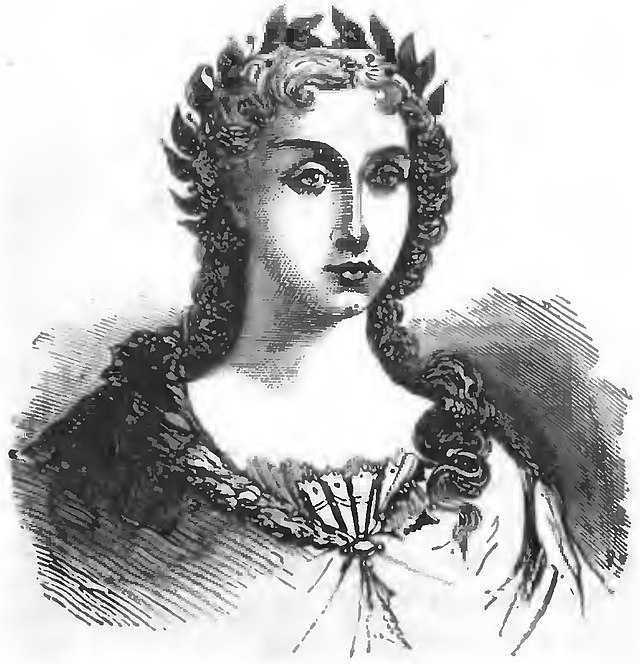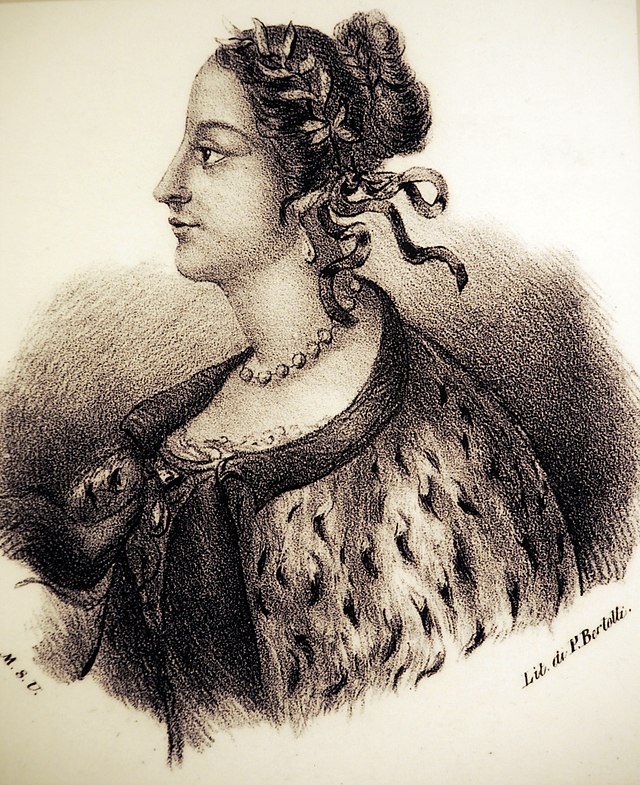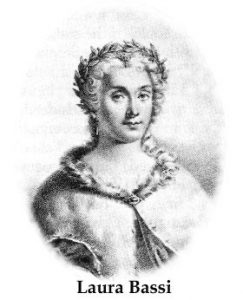 Laura Maria Caterina Bassi Veratti
Laura Maria Caterina Bassi Veratti
*October 29, 1711 (Bologna, Italy)
†February 20, 1778 (Bologna, Italy)
Spouse: Giuseppe Veratti
Children: According to baptismal records, she has eight children. (Three) daughters and (five) sons; only five reached adulthood
Laura Bassi was an important Italian philosopher, physicist and mathematician in the 18th century. She received a doctorate in the natural sciences and philosophy. In 1732, at the age of 21, she became member in the Academy of Sciences of the Institute of Bologna and beginns her teaching. Eventually she became university professor and was an important popularizer of Newtonian mechanics in Italy.
From the age of five until she was twenty, Bassi was privately tutored in latin, french, mathematics, philosophy, metaphysics, and logic. Her graduate work covered a wide range of subjects including chemistry, physics, hydraulics, mathematics, mechanics, and techniques. It has been reported that she has defended at least 31 dissertations at the university. She held the chair of Experimental Physics in 1776.
In 1738 Bassi married Giuseppe Veratti, a doctor of medicine and lecturer in anatomy at the University of Bologna. According to Bassi, the marriage has given her the freedom to perform her scientific duties. Despite her scientific activity, she did not neglect her domestic duties. In 1755 she founded her own school of experimental physics. Her scientific knowledge was mainly passed on through her teaching activities. Her most prominent students were the biologist Spallanzani and the physicist Volta. In the 1760s, Bassi and her husband worked together on experimental research in electricity. Her greatest interest was in Newtonian physics. She was introducing Newton‘s ideas of physics and natural philosophy to Italy and conducted her own experiments in all aspects of physics.
Cardinal Prospero Lambertini, later Pope Benedict XIV, supported her scientific work. She was admitted by him in 1745 to the Benedettini, an elite scientific group of 25 scholars. As a woman, she was restricted in her teaching. Therefore, she fought for teaching rights equal to those of her male colleagues, but without success. Laura Bassi belongs to a series of female intellectuals who advanced the status of women in academic circles.
Sophie Unger
-
Primary Sources
Bassi, Laura 1836. Alcune di Laura Bassi Veratti al dottor Flaminio Scarselli. Bologna.
Bazzani, Matteo 1778. Elogio della Dottoressa Laura Maria Caterina Bassi Verati. Bologna.
-
Secondary Sources
Ackerl, Isabella 2014. Mutige Frauen. 60 Porträts. 3rd ed. Wiesbaden: Marix Verlag (marixwissen).
Cavazza, Marta 2020. Laura Bassi. Donne, genere e scienza nell’Italia del Settecento. Milano: Editrice Bibliografica (Storie della scienza).
Ceranski, Beate 1996. “Und sie fürchtet sich vor niemandem”. Die Physikerin Laura Bassi <1711 – 1778>. Zugl.: Hamburg, Univ., Diss., 1996. Frankfurt/Main, New York: Campus-Verl. (Reihe Geschichte und Geschlechter, 17).Ceranski, Beate 1996. “Und sie fürchtet sich vor niemandem”. Die Physikerin Laura Bassi (1711 – 1778). Frankfurt: Campus-Verl. (Reihe Geschichte und Geschlechter, 17).
Ceranski, Beate 2020. »Und sie fürchtet sich vor niemandem«. Campus Verlag, Frankfurt am Main.
Fantuzzi, Giovanni 1778. Elogio della Dottoressa Laura Maria Caterina Bassi Verati. Unter Mitarbeit von Laura Bassi. Bologna.
Fantuzzi, Giovanni Um 1800. Elogio della Dottoressa Laura Maria Caterina Bassi Verati. S.l.
Frize, Monique 2013. Laura Bassi and science in 18th century Europe. The extraordinary life and role of Italy’s pioneering female professor. Heidelberg: Springer.
Magnani, Antonio 1806. Elogio di Laura Bassi Bolognese. in Venezia.
Meyer, Ursula; Bennent-Vale, Heidemarie (Hg.) 1997. Philosophinnen Lexikon. Leipzig: Reclam.
Schmidt, Willi (Hg.) 1990. Frauen in den exakten Naturwissenschaften. Festkolloquium zum 100. Geburtstag von Frau Dr. Margarethe Schimank (1890 – 1983). Unter Mitarbeit von Margarethe Schimank. Hans-Schimank-Gedächtnis-Stiftung; Festkolloquium zum 100. Geburtstag von Frau Dr. Margarethe Schimank (1890 – 1983). Stuttgart: Steiner (Beiträge zur Geschichte der Wissenschaft und der Technik, 21).
Whaley, Leigh 2016. Networks, patronage and women of science during the Italian enlightenment. In: Early modern women.
- Online Sources
-
ECC
-
Media
-
Projects
-
Quotes
You cannot copy content of this page










